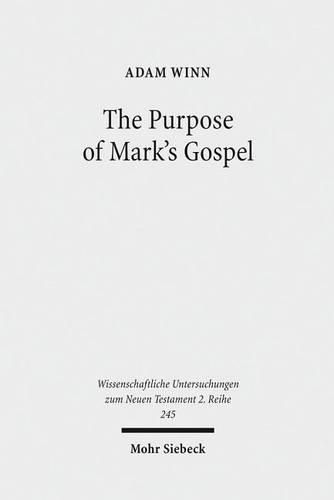In this book, Adam Winn addresses the long debated question of the purpose of Mark’s gospel. After placing the composition of Mark in Rome at a time shortly after the destruction of the Jerusalem Temple, he seeks to reconstruct the historical situation facing both the Markan evangelist and his community. This reconstruction focuses on the rise of the new Roman Emperor Vespasian and the aftermath of the Jewish Revolt in Rome. A significant feature of this reconstruction is the propaganda used to gain and secure Vespasian’s power-propaganda that included oracles and portents, divine healings, and grand triumphs. Of particular interest is the propagandistic claim that Vespasian was the true fulfillment of Jewish messianic prophecies. Winn argues that such a claim would have created a christological crisis for the fledgling church in Rome-a crisis that called for a compelling Christian response. Winn seeks to demonstrate that Mark’s gospel could be read as just such a response. He demonstrates how the major features of Mark’s gospel-his incipit, Christology, teaching on discipleship, and eschatology-can be read as a counter resume to the impressive resume of Vespasian. In the end, this project concludes that Mark was composed for the purpose of countering Roman imperial propaganda that had created a crisis for its author and community.





